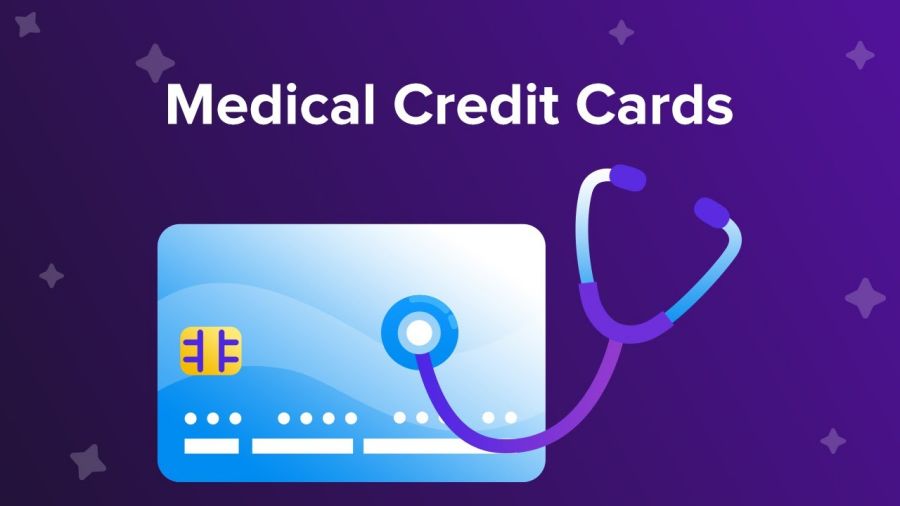
During pandemonium coronavirus and flu season, your visits to the doctor may be more frequent than in previous years. Or you may have a dental or vision procedure that you know will be expensive. Either way, expensive therapies can be easily summed up.
Depending on your insurance, deductibles and other out-of-pocket costs you may incur, your doctor may recommend a CareCredit® credit card or a medical credit card such as Wells Fargo Health Advantage to cover high bills.
However, while these medical credit cards appear to provide special financing, they are not the best way to finance your well-being.
What is a medical credit card?
Medical credit cards are specifically designed to help you pay for medical expenses and pay for medical expenses over time. You can use it to pay for medical expenses such as medical care, medical equipment, plastic surgery, dentistry, vision, hearing and even veterinary expenses.
Medical credit cards work just like traditional credit cards, but are more specialized. Generally, you can only use a line of credit to pay for medical expenses that exceed your cash. Medical credit cards do not allow you to pay for groceries or car repairs.
Many medical credit cards have interest rates similar to standard credit cards. Other cards, such as the Wells Fargo Health Advantage Card, have lower interest rates than most traditional cards, while some (like the famous CareCredit medical credit card) have higher interest rates. P and some others, such as the AccessOne MedCard, participate in a wide range of patient financial assistance programs that offer a variety of flexible payment plans for medical expenses.
How does a medical credit card work?
Medical credit cards can be provided by dentists, ophthalmologists, audiologists, plastic surgeons and veterinarians. It differs from traditional bank credit cards in that it can only be used to pay for medical expenses and only in the network of the health care provider who receives the card. However, when you use a medical credit card, you are borrowing money to pay your doctor, dentist, or other health care provider. As with other loans, look at fees and interest rates and compare medical credit cards to other options (such as traditional credit cards).
What should I look for when using a medical credit card?
Credit card enrollment in stressful times is usually not ideal. If possible, it might be a good idea to think about how to pay for your care before you enter the clinic.
The biggest risk for a medical credit card is the promotional 0% APR. Many of these cards offer 0% interest periods, but they usually come in the form of deferred interest.
Deferred interest means that your account is still charged interest on the full amount of your original debt during the promotional period. If you don’t pay off your entire balance by the end of the promotion period or if you miss your payment, you’ll have to pay all interest incurred, which adds to the cost.
Do I have to use a medical credit card?
Unless you first exhaust other options for paying your medical expenses, such as applying for financial assistance, and you have a realistic plan for paying off your debt during the 0% APR grace period on your medical credit card, there are usually better ways to pay off your debt. In fact, by using a medical credit card to pay your bills, you may actually lose your other repayment options.
And if you’re determined to use a credit card, you’re better off using a regular one.
“Using a balance transfer rate on an existing general credit card is essentially the same as using a medical credit card, but it doesn’t require a credit check and opening a new line of credit. Both of these factors make your score worse.
Medical credit cards affect credit.
Medical credit cards are credit products, so a credit check is required. Like other credit cards, you must apply, and if you don’t qualify for credit, you may be rejected.3 If approved, your account information may be given to the credit department, included on your credit report, and reflected in your credit score. Paying on time is important so that your credit is not affected.
Some medical credit cards require that you pay off your balance within a certain period of time, instead of allowing a nominal minimum payment for your balance. The repayment period is usually short, ranging from 6 to 36 months. However, some medical credit cards offer a repayment period of up to 60 months for more expensive procedures.
Can I get a medical credit card with a bad credit history?
Medical credit cards are not available to everyone. They prefer cardholders with good credit or with good credit to get bills they cannot pay immediately.
Medical credit cards are not designed for bad credit because they can charge high interest and fees if you don’t pay during the promotional period. Consider checking your credit report before applying for a medical credit card.
Medical Credit Cards can aggravate Medical Debt
Medical debt is a problem in the U.S., and transferring medical services to credit cards can aggravate debt.
A common problem with medical credit cards is that they are promoted by medical staff who are not always fully aware of the credit card terms and conditions. Too often, patients don’t get the cost information they need to make informed decisions.
And because the medical staff promotes credit cards directly, patients may consider signing up for their own billing system in the medical office rather than opening a new credit card account. This fact may have caused the patient to reject the offer.



GIPHY App Key not set. Please check settings